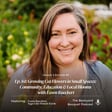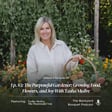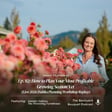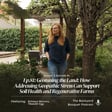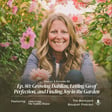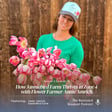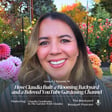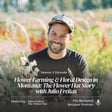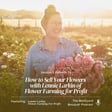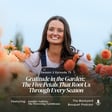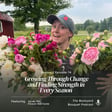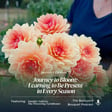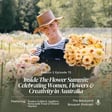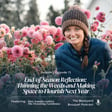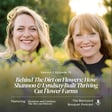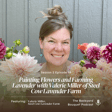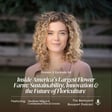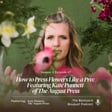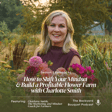
Ep.63: Floral Standards Every Flower Farmer Should Know with Diane Szukovathy of Jello Mold Farm
In Episode 63 of The Backyard Bouquet Podcast, Jennifer sits down with Diane Szukovathy of Jello Mold Farm to explore the critical role of floral standards in flower farming. Diane shares how she went from planting zinnia seeds as a child to co-founding the Seattle Wholesale Growers Market and co-authoring Floral Standards — a groundbreaking guide for harvesting and handling over 230 floral crops.
We dig into:
- Growing pristine, sustainable flowers and achieving Salmon-Safe certification
- The inspiring creation of the Seattle Wholesale Growers Market, a farmer-owned co-op
- Why harvest timing and quality control are key to professional flower sales
- How Floral Standards is becoming the go-to guide for farmers, florists, and collectives
Whether you’re growing in your backyard or managing a flower farm, this episode will help you cut better stems, build stronger systems, and elevate your craft.
Show Notes: https://thefloweringfarmhouse.com/2025/07/01/ep-63-floral-standards-for-farmers/
🌿 Order the Floral Standards book: Seattle Wholesale Growers Market
📬 Connect with Diane: Visit jellomoldfarm.com and click “Contact Us”
Follow Seattle Wholesale Growers Market on Instagram: https://www.instagram.com/seattlewholesalegrowersmarket/
Seattle Wholesale Grower's Case Study: https://jellomoldfarm.com/wp-content/uploads/2022/03/2021_Seattle-Wholesale-Growers-Coop-Case-Study_final-low-res.pdf
📌 Please Subscribe to The Backyard Bouquet Podcast for more flower farming insights!
Sign up for our newsletter: https://bit.ly/thefloweringfarmhousenewsletter
***Rate, Review, & Follow The Backyard Bouquet***
If you enjoyed this episode, will you please consider leaving the podcast a review? Your review helps make the podcast more discoverable to others and allows me to continue creating more episodes. I'd love to know what you enjoyed most about the episode.
New episodes every week to help keep your garden blooming!
